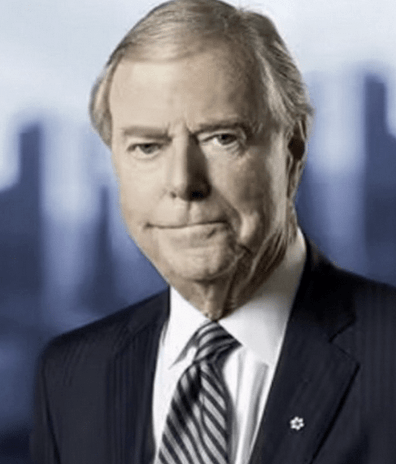The Homestretch: Debate-Week Takeaways

By Don Newman
April 18, 2025
As we enter the 10-day homestretch of Canada’s most important election campaign in generations, many voters will be spending this long Easter weekend either casting their ballots in advance polls across the country or taking a last look at the very different candidates. This week provided a crucial window on those candidates, especially the two top rivals, Prime Minister Mark Carney and Conservative Leader Pierre Poilievre.
Although he won the Liberal leadership in March with more than 80% of the vote, the nagging concern among Liberals about Mark Carney was that he was not a politician and might not stand up to the rigours of a tough, no-holds-barred election campaign.
Throughout this campaign, those fears have been largely allayed. Carney has performed well enough at the planned campaign events around the country and been more accessible to the media than Conservative leader Pierre Poilievre to counter any concerns that he could not handle a national political campaign. That confidence was supported by the fact that the Liberals have been leading the national public opinion polls by between five and six points over the Conservatives, and by wider margins in the vote-rich provinces of Ontario, Quebec and the lower mainland of British Columbia where Canadian governments are elected.
Which brings us to debate week. Both Carney and Poilievre were in Montreal to appear on the popular Quebec public affairs show, Tout le monde en parle, last Sunday. In what seemed an unusually mild interrogation from host Guy A. Lepage, both of them survived.
Wednesday was the leaders’ debate in French. Bloc Québécois leader Yves Francois Blanchet was the only Quebecer taking part. Home field advantage is important, and he shone. But like most Canadians, Quebeckers are concerned about which Canadian leader can best deal with U.S. President Donald Trump and his punishing tariffs on Canadian exports, and leading a regional party that only elects MPs in Quebec means that Blanchet has no chance of ever being Prime Minister.
Carney has what is known in Ottawa as “public service French”. He can carry on a conversation in French, particularly if it is about a topic with which he is familiar. To improve his facility in the language he has been setting aside parts of each day on the campaign trail to speak only French with his staff. He has improved, but he is still not completely bilingual.
Carney survived the French debate without any damage. That left only Thursday’s English debate to get through. This was the big test. And it wasn’t easy.
Right now, in Quebec, that doesn’t seem to matter. Most people are accepting that Carney gets by in French and is improving. They are even more impressed by his resumé; governor of the Bank of Canada and then governor of the Bank of England. He led Canada through the financial crisis between 2008 and 2010 and Britain through the disruption of Brexit when the United Kingdom left the European Union.
The polls have been showing the Liberals are far in front of the Bloc and all the other parties in Quebec. Carney survived the French debate without any damage. That left only Thursday’s English debate to get through. This was the big test. And it wasn’t easy.
As the front-runner Carney was the focus of the three other leaders’ attacks, on every issue you could imagine. The only issue that really mattered, given its existential, overarching nature, was the one most people think this election is about; who is best to deal with Trump, his tariffs and his designs on Canada. Since this is Carney’s long suit the Conservative, NDP and Block leaders stayed clear of it except when debate moderator Steve Paikin raised it.
At the conclusion of the two-hour debate each leader was invited to ask another leader a question. Not surprisingly, in an unintended tribute to his front runner-status, the other three all asked Carney. By ducking and weaving, he managed to avoid any damage.
Then it was Carney’s turn to pick a leader and ask a question. He chose Poilievre, and asked him a question the Conservative leader had been asked and dodged many times before. Why, he wanted to know, would Poilievre not get a security clearance so he could receive briefings and review confidential documents from official security sources as other Opposition party leaders have?
Poilievre launched into his standard answer that he didn’t want to be limited in what he could say if he had a clearance. Apparently, the Conservative leader wants to say things whether or not he knows they are true rather than deal with the facts a clearance would make him privy to. As Carney pointed out, the other opposition leaders have clearances. That doesn’t seem to stop them from attacking the government, with few restraints on what they say.
Carney wouldn’t say — or couldn’t say before he was cut off for time — what many people in Ottawa suspect is why Poilievre won’t apply for a clearance; that he doesn’t want to find out things about some of his MPs that he would subsequently have to deal with.
A more seasoned politician might have called the Conservative leader on that issue first. But then maybe that’s why Carney is ahead.
Policy Columnist Don Newman is an Officer of the Order of Canada, and a lifetime member and a past president of the Canadian Parliamentary Press Gallery.
